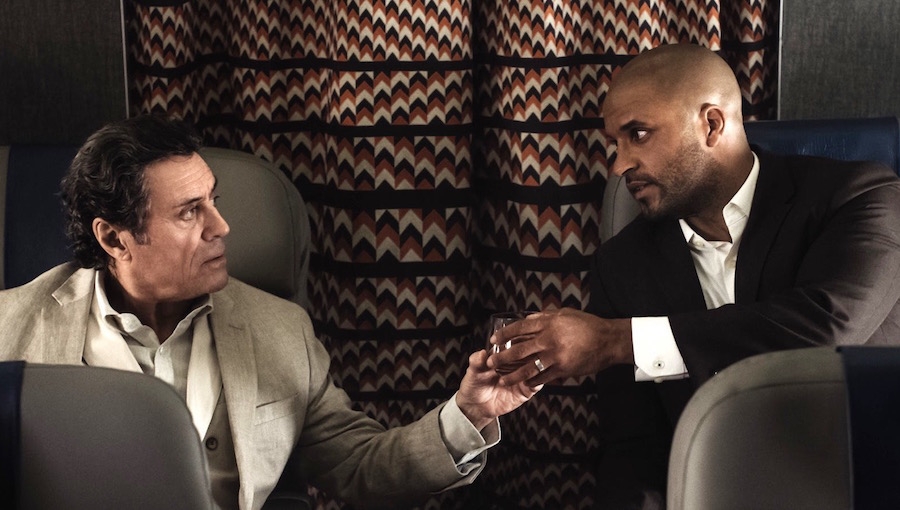A word of warning—I will to try to minimize the spoilers in my reviews for American Gods; however, discussing and analyzing something as complex as American Gods is impossible to do without spoiling some things.
SPOILERS BELOW
The world in American Gods runs on the principle that if enough people believe in something and sacrifice to it, then it will exist. So, in essence, the gods did not create humans, but humanity’s belief in them caused their manifestation. When immigrants came to America, their beliefs brought their gods with them. Over generations, the old gods’ power has waned as belief in them has faded. We now sacrifice our time to the new gods (such as Technology), and a war is brewing between the two factions.
The book is a fascinating examination on America as a melting pot for immigrants. Writer Neil Gaiman (himself an immigrant) focuses on the patchwork of adopted mythology that constitutes American culture and how it can lead to fighting among the disenfranchised. In our current political climate with the animosity towards immigrants happening simultaneously with the rapid acceleration of technological advancements, the story is now more relevant than when it was written in 2001.
“The Bone Orchard” begins with Mr. Ibis telling the story of the Vikings arriving in America and bringing the first gods here. Mr. Ibis is an ostentatious storyteller who focuses on the legend rather than the actual details. As such, the opening scene is a visual barrage of exaggerated violence used to set the tone for the show and let viewers know to expect a visually stunning, wild ride.
We then move on to present day, when Shadow Moon learns of his wife’s death as he is released from prison. The show iteration of Shadow seems to be a bit more verbose than his book counterpart. I understand the change, if they did not do this, then it would necessitate adding internal monologue narration, but I hope as the series continues that they will allow some more quiet introspection for Shadow. On his way home, he crosses paths with Mr. Wednesday, a man who first appears to be a doddering, old fool until it is quickly revealed that he is a cantankerous conman who has a knack for manipulating people. When all other options are exhausted, Shadow reluctantly agrees to work for Mr. Wednesday, although, at this point he is not completely aware of all that his job entails.
This is only the first episode, but so far, the show appears to be a remarkably close adaptation. There have been some tweaks (particularly in the case of updating Technical Boy to be a hipster that better reflects technology as it is now, not 16 years ago), but they have helped to enhance the story and better fit the medium of television. Not all of the cast necessarily looks like their descriptions in the book; however, they embody the heart of the characters—which is far more important. I know there have been announcements about expanding characters’ roles and adding gods who are not in the book. Hopefully, that will allow for some surprises along the way to those of us who have read the book.

